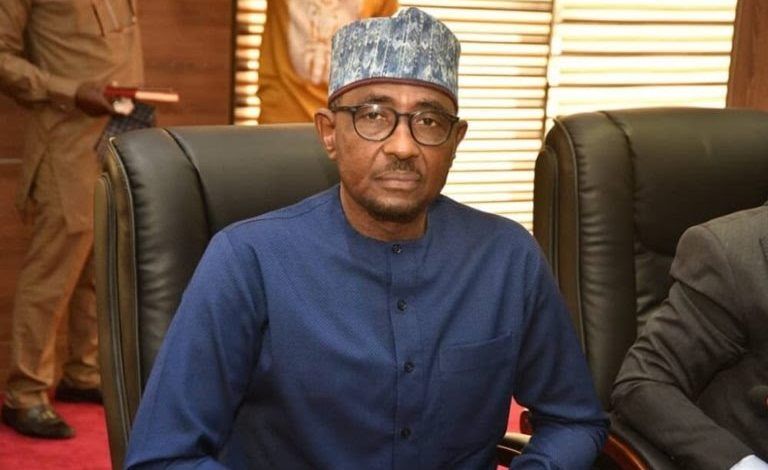
The Chief Executive Officer of the Nigerian Midstream and Downstream Petroleum Regulatory Authority (NMDPRA), Farouk Ahmed, has raised alarm over the growing instability in global oil markets, warning that the volatility is significantly undermining Nigeria’s economic resilience.
Speaking at the Meet-the-Press briefing organised by the Presidential Communications Team at the Aso Rock Villa on Tuesday, Ahmed said Nigeria’s oil-dependent economy faces mounting pressure as crude prices tumble. While the decline in petroleum product prices may offer temporary relief to consumers, he stressed that the broader impact on national revenue and economic planning is severe.
“As consumers, we are happy that the price is coming down,” Ahmed said. “But as a nation, it’s not good for our economy because our revenue inflow is also impacted.”
He cited a sharp drop in crude oil prices from $73 to $60 per barrel in just one day as a recent example of the revenue shocks facing the country. This, he explained, was largely triggered by global policy inconsistencies, particularly those emanating from the United States. “What is even destabilising the market,” Ahmed noted, “is inconsistencies in the way the USA President Donald Trump also sends his policies. He moves today. Tomorrow, he reverses. So, it’s been challenging to predict the next level.”
Ahmed pointed to the Trump administration’s erratic use of tariffs especially on China as a major driver of global market uncertainty. These policies, he said, have disrupted international trade and injected volatility into oil and commodity markets. “Investors and traders across industries are now doing day trading buying and selling within the same day because no one can predict what policy shift might happen tomorrow,” he added.
This unpredictability, he argued, continues to affect Nigeria directly. With oil output falling to 1.4 million barrels per day, according to recent OPEC data, even a $10 drop in global oil prices now poses a substantial risk to national revenue, foreign reserves, and the value of the naira.
On the local front, Ahmed acknowledged the challenges posed by pipeline vandalism and fluctuating production levels, but also highlighted progress in domestic refining and fuel supply. He disclosed that imports of Premium Motor Spirit (PMS) have dropped significantly from 44.6 million litres per day in August 2024 to just 14.7 million litres by April 13, 2025 a decline of roughly 67%.
The drop in imports, he explained, reflects the rising contribution of local refineries, particularly following the phased restart of the Port Harcourt Refining Company in November 2024 and increased output from modular refineries. In the same period, domestic supply surged by more than 670%, with local plants delivering 26.2 million litres per day in early April, up from just 3.4 million litres recorded in September.
Despite these gains, Ahmed noted that combined supply from all sources only surpassed the government’s benchmark of 50 million litres per day twice—in November 2024 and February 2025. In March, supply slipped slightly to 51.5 million litres, and in early April, it dropped further to 40.9 million litres.
He also revealed the supply breakdown by source, showing that Oil Marketing Companies (OMCs) now account for the majority of daily petrol supply, contributing between 55% and 60% on most days. The Dangote Refinery, he said, has emerged as a major player, ramping up production from 10 million litres per day in October to about 22 million litres in early 2025, though it later eased to 18 million litres by mid-April. Meanwhile, the Nigerian National Petroleum Company Limited (NNPCL), which delivered 24 million litres per day in October, has recorded zero PMS supply since February.
Ahmed reaffirmed that NMDPRA only grants import licences in line with national supply needs, reinforcing the agency’s commitment to efficient fuel market regulation. He also provided an update on refining capacity, noting that six private refineries and four public facilities currently produce 1.12 million barrels per day (bpd). The Dangote complex alone contributes 650,000 bpd, while state-owned refineries Port Harcourt, Warri, and Kaduna account for a combined 445,000 bpd.
In terms of licensing, the NMDPRA has issued 47 licences to establish refineries with a combined capacity of 1.75 million bpd, and 30 licences to construct, covering 1.23 million bpd. However, only four plants currently hold licences to operate, collectively producing 27,000 bpd consistently.
Five major refining projects, including Dangote’s, are at the commissioning or construction stage, with a combined capacity of 689,500 bpd. These also include AIPCC Energy’s 30,000 bpd facility and Waltersmith’s 5,000 bpd second train.
Despite the strides in local refining and improved regulatory oversight, Ahmed warned that continued global volatility particularly driven by geopolitical tensions and policy uncertainties means Nigeria must prepare for ongoing challenges in the petroleum sector.
“We must anticipate that this volatility will continue,” he concluded. “And we must build resilience through increased local refining, diversified revenue sources, and robust policy responses.”





